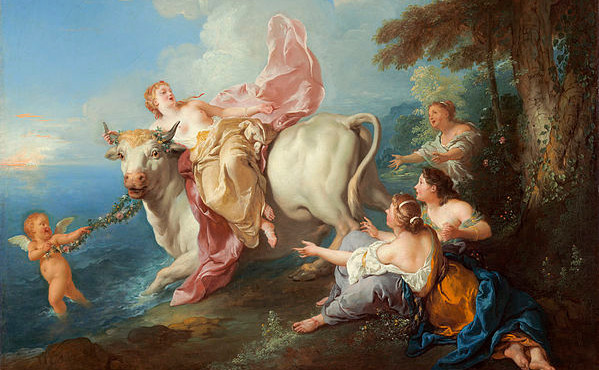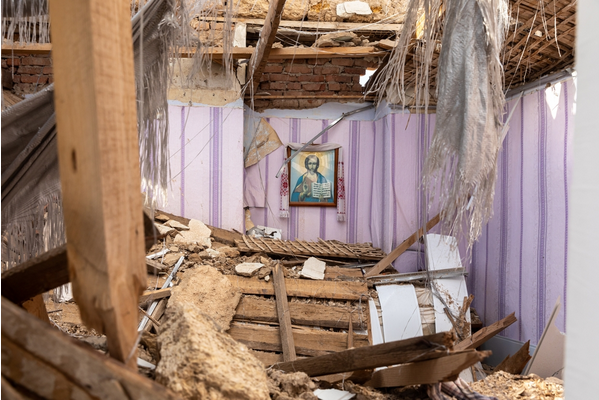


To Describe Law Is To Transform It
9 April 2018
Researchers are joining forces to better study the economics of housing
10 April 2018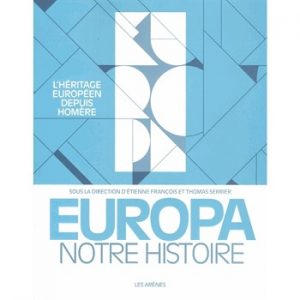 Europa notre histoire (Europa, our history) is a book of unparalleled breadth that was recently published by Les Arènes. It is a real editorial feat to which Jakob Vogel, a researcher at Sciences Po’s Center for History, devoted three whole years. That is what it took to orchestrate the works of 109 authors who shed light on 25 centuries of European history as experienced by both European and non-European people. Interview
Europa notre histoire (Europa, our history) is a book of unparalleled breadth that was recently published by Les Arènes. It is a real editorial feat to which Jakob Vogel, a researcher at Sciences Po’s Center for History, devoted three whole years. That is what it took to orchestrate the works of 109 authors who shed light on 25 centuries of European history as experienced by both European and non-European people. Interview
How was such a compendium conceived?
It is structured in three distinct parts, each of which could stand alone, and it can be approached in different ways. The first part, “Presences of the past”, aims to highlight a common thread running through the notable and foundational elements of Europe’s memories, from the World Wars to the Holocaust and Human Rights, as well as sensibilities from Antiquity through the present. The second part, “Europe”, underscores its plural dimension by addressing major figures, locations and both shared and divisive visions across the continent. I edited the last part, entitled “world memories”, which explores European traces all around the world, as well at the multiple exchanges in all of their complexities.
Another approach is to individually go through the articles, which are all of different lengths: the goal is to spark the reader’s imagination. Some of the articles are very short akin to stylistic studies. One of my favorite ones is about the Kalashnikov. Is it a Soviet, Russian, international or European icon (during the Cold War in Eastern Europe)? It shows how the various articles were conceived: they are not the components of an encyclopedia of all the elements of European history, but rather tools to continue or develop reflection on other subjects that are not addressed but should be. Even with 14,000 pages, not everything can be covered! We also wanted the book to continue in the form of a blog… a publisher or institution would have to launch it and, once again, it would be a big endeavor …
One of the book’s intentions is to show that Europe does not just belong to Europeans…
This book presents the way we approach the history of Europe and its legacies. The “we” I am talking about does not ju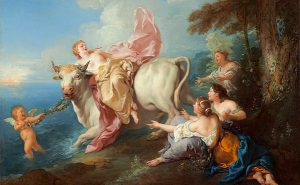 st refer to the historians who directly work on Europe and often consist of Europeans, but also includes all those thinking about the history of Europe – that is, all of the researchers outside of Europe who attribute a fundamental role to relationships with the continent. This can be seen in our colleague Akiyoshi Nishiyama’s article, which shows to what extent contact with Europe has been fundamental for the Japanese and remains “the obsession” of their national narrative.
st refer to the historians who directly work on Europe and often consist of Europeans, but also includes all those thinking about the history of Europe – that is, all of the researchers outside of Europe who attribute a fundamental role to relationships with the continent. This can be seen in our colleague Akiyoshi Nishiyama’s article, which shows to what extent contact with Europe has been fundamental for the Japanese and remains “the obsession” of their national narrative.
Is European history viewed differently in Lisbon, Helsinki, Paris and Berlin?
Absolutely. The book, like a kaleidoscope, shows the different ways in which people have appropriated European history, not simply through a national prism, but with a broader, transnational and European perspective. It shows that important, substantive debates about the boundaries of what we call Europe are underway. One of our objectives was to explore the different perimeters of European history, and not just limit ourselves to a single definition, be it geographical or political. This can easily be seen in the debate over Brexit, which involves the “European Union” as a Europe entity, with the British always saying “we are leaving the European Union, not Europe”. This is a very important distinction for them. 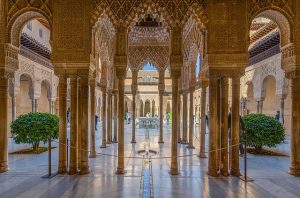 We wanted to develop a history that covered the British despite their decision to exit the EU, to show the multiple ways of defining oneself as European. It is a fundamental dimension of this enterprise. The same goes for the controversial history of Islam in Europe: is Muslim Europe considered to be European or non-European despite its presence in Europe, bearing in mind that the Balkans and Southern Spain were strongly influenced by cohabitation with Islam? We show how, through history, the definition of Europe as Christian has always played a very important role in discussions about the very essence of European history. This is clearly demonstrated in John Tolan’s article on “Islam as a mirror for Europe”.
We wanted to develop a history that covered the British despite their decision to exit the EU, to show the multiple ways of defining oneself as European. It is a fundamental dimension of this enterprise. The same goes for the controversial history of Islam in Europe: is Muslim Europe considered to be European or non-European despite its presence in Europe, bearing in mind that the Balkans and Southern Spain were strongly influenced by cohabitation with Islam? We show how, through history, the definition of Europe as Christian has always played a very important role in discussions about the very essence of European history. This is clearly demonstrated in John Tolan’s article on “Islam as a mirror for Europe”.
This is why the authors chose “Europa” as the title, rather than Europe. We wanted to distinguish ourselves from the usual terminology. The Latin term helps define the subjects and show that we are neither speaking of the European Union or the geographical continent, but of “our history”. It is a perspective that shows that European history is viewed differently from Libson, Helsinki, Paris and Berlin. In short, the key guiding idea was that European memories are more than the sum of national memories.
Many of the contributors are not European…
Yes, this history is alive, open and still debated. We valued bringing together many authors and views on European history. Around a quarter of the authors are French and a quarter are German, but these two nationalities do not dominate the historiography, and all of the authors transcend – each in their own way – their national frameworks. Many other Europeans and non-Europeans are featured. The last part of “world memories” concludes with a magnificent article by Sanjay Subrahanyam presenting an non-European vision of Europe. The idea was to break out of the usual French debates about Europe and about European history and historiography in general. The many authors share voices and perspectives that we rarely have the opportunity to read in French. From a publishing standpoint the translation policy was key. The publisher was bold enough to let the authors write in their native language; the articles were then translated. As a result, the book does not just present the usual three or four authors – historians and other – who are most commonly read everywhere.
The public and the press have commended this book. We have increased the number of planned presentations in schools and for teachers because the book is open to the general public, with intelligible and comprehensible texts. We hope that it will be translated. An English publisher is interested…

